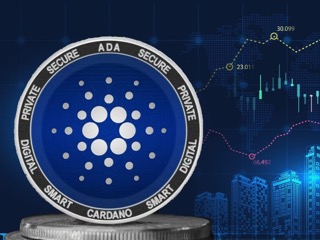The crypto market has been looking to consolidate following a major price correction earlier in the week. One market that has felt the brunt of this correction is BRC-20 token which has suffered a major dip in its market cap.
According to brc-20.io, which tracks the nascent market for tokens minted on the Bitcoin blockchain, the market cap of all BRC-20 tokens between May 8 and 11 went from $990,000,000 to $379,000,000, a 62% drop. At the time of writing, the market cap of BRC-20 tokens has rebounded and is around $570,000,000, making it a 40% dip within the seven-day trading period.
Related Reading: Bakkt Streamlines Apex Crypto Platform By Removing 25 Tokens
The BRC-20 market is largely tied to the capitalization of ORDI token, which dominates more than 80% of the trading volumes. At the time of writing, it is currently trading around $15, down from its all-time high price of $28, achieved earlier in the month. The importance of ORDI in this market means that price variations directly and considerably affect the market cap of BRC-20 tokens.
A Deep Dive Into BRC-20 Token
BRC-20 is an experimental standard for issuing and transferring fungible tokens on the Bitcoin network. The deployment, issuance, and transfer of these tokens is done via a JSON data entry. Hence its relationship with the NFT Ordinals of Bitcoin.
The creation of this standard is credited to a developer known as Domo on Twitter. On March 8, the computer scientist announced his progress in this area and acknowledged that it would be difficult for him to take this test further. For this reason, he preferred to share the project with others to experiment with. Since then, the ecosystem has exploded, with more than 14.000 tokens launched, according to brc-20.io.
Although the name BRC-20 is a reference to Ethereum’s ERC-20 standard. However, both standards differ in several of their characteristics, especially due to the differences between the networks in which they work, Bitcoin and Ethereum.
First of all, Bitcoin’s BRC-20 tokens do not have the ability to interact with smart contracts, while ERC-20s do. Other limitations of the BRC-20 tokens compared to those of Ethereum is that they cannot have decimals, be burned or frozen, and have additional functions such as approval or delegation.
Related Reading: PayPal Plunging Despite Increasing Crypto Holdings
BRC-20 Tokens Not Without Controversy
Some Bitcoin maximalists have criticized the growing popularity of BRC-20 tokens due to their effect on the Bitcoin network. There has been growing congestion on the Bitcoin network, and it broke the record for the average number of transactions processed per block with an astonishing 4,373 transactions, marking an all-time high. Nevertheless, proponents of this token standard argue that it expands the Bitcoin blockchain to new possibilities and provides new use cases for the leading cryptocurrency.

-Featured Image from iStock, charts from brc-20.io and Tradingview
Credit: Source link













































































































































